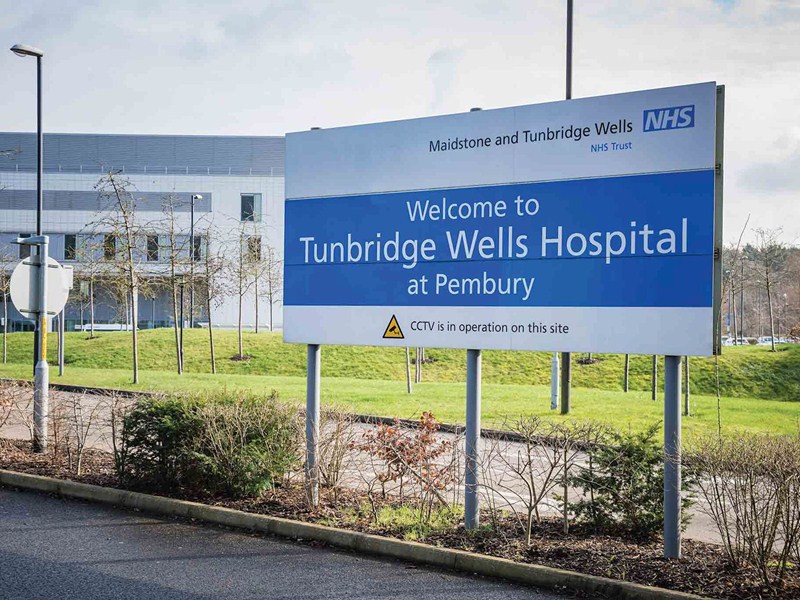THE suspension of non-urgent operations at Tunbridge Wells and Maidstone hospitals resulted in some 1,500 people being forced to wait longer for treatment.
However, the West Kent Clinical Commissioning Group (CCG), has said its 102-day suspension of procedures ‘had limited impact on patients’.
The NHS body announced last year that it would delay some surgery between December 20 and the end of the financial year in April.
The move, which is thought to be unprecedented in the history of the health service, was taken in order to save the CCG £3.2million.
The group found at the end of last year that it was experiencing a higher demand for ‘elective’ or planned care than it had accounted for in its annual budget.
West Kent CCG duly achieved its financial target, ensuring that it did not breach its annual budget of £616million.
The treatments affected were not specified at the time, but included operations to relieve pain, immobility and disability, such as hip and knee replacements.
Bob Bowes, Chairman of West Kent CCG, told the Times: “The decision to stop non-urgent surgery for a short time had limited impact on patients.
“We estimate that 1,500 people were affected by the decision. To give that some context, more than 50,000 operations are carried out each year.”
That works out as 15 prospective patients a day being denied the treatment that they were seeking after decisions were taken at outpatients’ consultations.
He added: “Those that needed an urgent operation were scheduled as normal and nobody who had a date already had their operation cancelled as a result of this decision.
“The programme delayed treatment only for those patients who the specialist decided could wait a little longer once they had been seen in outpatients.
“We are very grateful to those that have had to wait a little while longer for their operation and thank them for their understanding.”
It remains unclear whether there will now be a backlog of those waiting to have their procedures performed with some senior NHS staff anxious that prospective patients’ conditions may have worsened during the moratorium.
The CCG’s board papers revealed that it hoped to save £2.1million by not sending patients for surgery at either Tunbridge Wells or Maidstone Hospitals, and a further £1.1million for those wanting to go private.
It serves 463,000 people in the region which is covered by the Maidstone and Tunbridge Wells NHS Trust (MTW), which was itself placed in Special Financial Measures last July after forecasting a projected budget deficit of £23million.
The group is also considering other non-urgent treatments such as in-vitro fertilisation and cataract removal for postponement.
Suspension ‘unfair’ on patients
The Royal College of Surgeons were highly critical of the move to ban operations, which it said is the longest such suspension on record.
Its President, Clair Marx, said the move was ‘unfair’, adding: “Patients, some of whom may be in severe discomfort or pain, should not be made to wait longer for treatment because the CCG has run out of money and surgical patients are perceived as easily postponed.
“The CCG is trying to make short-term savings which may have major consequences for patients. While patients wait for treatment, their conditions could deteriorate, sometimes making treatment more complex and costly in the long term.”
She also claimed that making surgeons and their teams stand down was ‘inefficient and a waste of scarce resource…Clinical decisions must not be made purely on a financial basis.”








